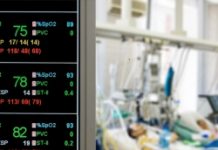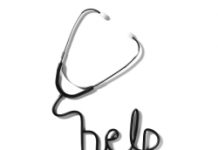 As a junior doctor, it could be easy to dismiss the prospect of being unable to work because of illness or injury as something that only happens to older colleagues. However, as a doctor, you know anyone could be struck down by illness and be unable to work at any time of their life, which could have serious implications for their finances.
As a junior doctor, it could be easy to dismiss the prospect of being unable to work because of illness or injury as something that only happens to older colleagues. However, as a doctor, you know anyone could be struck down by illness and be unable to work at any time of their life, which could have serious implications for their finances.
This is why an income protection policy should be an integral part of any financial plan right from the start of your career, as it will enable you to maintain your standard of living should anything happen to you.
What keeps doctors off work?
Wesleyan Medical Sickness has analysed almost 5,000 income protection claims made to it from 2002 to 2012. The single most common complaint that kept doctors off work over the past decade was psychological disorders (23%). This was followed by musculoskeletal disorders (19%), cancer (11%) and heart conditions (10%).
More than a quarter (28%) of all the income protection claims made to Wesleyan during that time were for periods of illness that lasted longer than a year, and, of those, the claims lasted an average of almost seven years.
Three quarters of claims were made by doctors between the ages of 40 and 59. While this may seem a long way off at the start of your career, it is important to take out income protection as soon as you can rather than waiting until later in life as it could potentially make it more difficult to find cover.
Why you need income protection
If you work in the NHS and fall ill, the maximum amount of sick pay that can usually be claimed is six months full pay, followed by six months half pay after five years continuous service. Remember, this only takes into account your NHS work, not any private work. If you work wholly in the private sector, any sick pay you are entitled to will be determined by your employer.
Income protection policies are generally based on your full earnings and will pay you a regular tax-free income, typically up to 50% of your pre-incapacity level. Most policies pay out until you are well enough to return to work, are no longer suffering from a loss of earnings (such as if you start receiving your pension), you reach the maximum age for your policy, or you die.
Without an income protection policy, once your sick pay stops you may have to draw upon any savings you might have or, if eligible, rely on state support. The Employment and Support Allowance currently pays out a maximum of £105.05 a week, which is likely to be some way short of your regular income.
What to look for when buying income protection
When buying income protection you should ensure the policy is specifically tailored to your needs and provides all the key benefits you require if you need to claim.
For example:
- Ensure the policy includes an ‘own occupation’ definition, meaning it will pay out if you are unable to carry out your specific job. If the policy states ‘any suited occupation’, it won’t pay out if you are able to carry out other types of work based on your knowledge and experience.
- Check the scheme offers ‘permanent’ protection, meaning the terms on which it is offered will remain unchanged until the policy expires or you retire, whichever comes sooner.
- Think about the right deferred period for your needs. Premiums are normally cheaper if you wait longer before benefits are paid, so you might choose to defer payments until other sources of income, such as sick pay, have expired or reduced.
- Review your policy regularly as it may be impacted by any changes in employment conditions and salary increases that occur throughout your career.
Conclusion
Any time you are off work without receiving an income could leave you financially vulnerable. A financial adviser with understanding of the medical profession will help ensure you are protected and have adequate cover in place.
The above information does not constitute financial advice. If you would like more information or need specialist financial advice, call Wesleyan Medical Sickness on 0800 358 6060 or visit the website at www.wesleyan.co.uk/doctors.



































